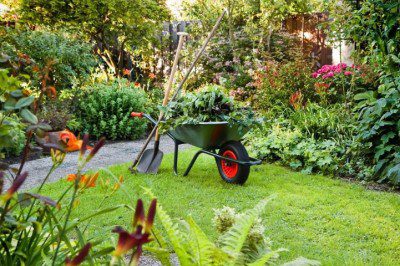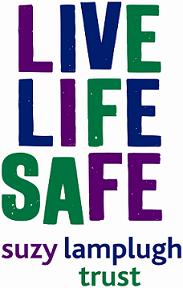 March Crime Incidents
March Crime Incidents
March started quietly with the local Policing team only having one theft to deal with well away from the village at Fiddlers Folly but it wasn’t to last.
Theft of Pedal Cycle from Maltings Park Road
The cycle was left unattended on the victims driveway at 7:10pm on 15th March, and was missing when they returned to it 15 minutes later. The information release below offers advice on this subject.
Criminal Damage on the B1508
At 2pm on 20th March the cables to the Public Telephone were cut by person or persons unknown.
Criminal Damage to a vehicle on Nayland Road
Between 5:30 & 8:00pm on 31st March an unknown suspect caused damage to the victims car by throwing, or using, an object to hit the top of the rear window thereby smashing the glass.
Theft of Keys in Spring Lane
Between 8:15 & 8:45pm on 31st March an unknown suspect removed the victim’s keys from an unattended handbag.
Information Releases
Somewhat fitness related this month with advice to protect bicycles, runners and walkers below . Essex Police also issued a release on the Cancer Scam already reported on this site earlier in the month.
Bicycle Crime Prevention Advice
Now that spring is upon us it is more likely that you will want to get your cycle out, all the more reason t pay heed to the following advice: When buying a bike, budget for security. You will need one or more locks and somewhere secure at home to keep your bike. Make sure you don’t buy a stolen bike. By buying a stolen bike you are helping to support the illegal trade in bikes – the next stolen bike to be bought could be yours! By avoiding doing so you help make it less likely your bike will be stolen in the future. If you buy a bike from a legitimate seller, it is likely to be more reliable and you’ll probably be covered if anything does go wrong with it. Do what you can to check it is from a legitimate outlet and that they are sure it is not stolen. If it seems suspiciously cheap, ask yourself why. You may be able to check the ownership of a bike you intend to purchase by searching a property register such as Immobilise, or asking for proof of purchase or ownership. Take out adequate insurance, either by extending your home contents insurance or through a separate policy. Cycling organisations and bike shops may offer specialist cover. Do this at the time of purchasing the bike otherwise you may not get around to it. Record and register your bike. Take a clear colour photograph of your bike and make a written record of its description, including any unique features, so that you can report it accurately if it is stolen; this will help prove it is yours if it is recovered by the police.
- Register your bicycle model, make and frame number with a third party. (The frame number is often underneath the bottom bracket where the pedals attach, or on the frame under the seat.) Again this will help anyone who subsequently finds (or even buys) it to check whether it is stolen – and return it to you. Some registration schemes allow you to register individual bike parts that have serial numbers. Contact your local police station for further advice.
- If you add an additional security mark or tag to your bike, this will again make it easier to identify as yours. Sometimes your local police will provide this service for free. The mark may be obvious, which should help deter thieves; or hidden, such as ultraviolet; or there may be a combination of both. Clearly visible marks should be securely applied. A hidden mark or electronic tag is less likely to be identified and removed by thieves.
Basic security
It may seem as though there are lots of things to think about when locking your bike, but once you get into the habit you will be able to lock your bike within seconds and it will be well worth the trouble.
At home
More than half of all bicycle thefts take place from an owner’s property. So as well as taking care of your bike when you are out and about, you should think about how safe it is at home. Some things you can do are:
- Keep your bike in a secure shed or garage and get into the habit of keeping the door locked. If you keep your bike in a shed, make sure you get a robust lock for the door.
- Secure it to an immovable object, or consider installing a floor or wall-mounted anchor lock for extra security.
- If you are going to keep your bike in a communal area, is there anything you can lock it to?
- Keep it out of public view.
- For additional protection, keep your bike locked wherever you leave it at home.
Out and about
- Avoid leaving your bike in dimly lit or isolated places. Leave your bike where a potential thief can be easily seen.
- Always lock your bicycle, even if you are just leaving it for a couple of minutes. Think about using two different types of lock – see advice on ‘Locks’ below.
Security
- Lock your bike to an immovable object – where possible use a proper bike rack, ground anchor or street furniture that offers multiple locking points and will stop your bike falling and causing an obstruction. Bikes locked to lampposts, railings or anything else not designed for this purpose are more vulnerable to theft, so only use these if you really have to. Remember that thieves can remove drainpipes and lift bikes off signposts. If provision is inadequate, bring this to the attention of the relevant local authority or property owner.
- Lock both wheels and the frame of your bike to the bike stand or other immovable object.
- Secure removable parts. Lock both wheels and the frame together. Take with you smaller components and accessories that can be removed without tools (for example, lights, pumps, computers, panniers and quick-release saddles). Fit secure skewers to wheels, headsets and seat posts. Ask a bike shop for specialist advice.
- Make the bike and lock hard to manoeuvre when parked. Keep the gap between bike and lock small – the smaller the gap, the harder it is to insert levers or other tools. Keep the lock or chain away from the ground; never leave them lying on the pavement – a lock can be sledge-hammered. Locks can also be picked, so face the lock to the ground (but not resting on it) so it can’t easily be turned upwards for picking easily when it’s resting on the ground.
Locks
Invest in good quality locks. Hardened steel D-shaped locks and sturdy chain locks are recommended. Be prepared to spend 10% of the value of your bike on locks. It is always best to use two locks. Go for two different types of lock, for example a strong D lock and a sturdy chain lock. This means that a thief will need different tools to break each lock, making theft less likely. There are many different products on the market and price is not necessarily a reliable indicator of quality and resistance to attack by thieves. Also important is how long the product resisted attack. There is a grading system used by Sold Secure to assess locks, based on how long they withstand attack. The Gold Standard locks resist longest; Silver and Bronze resist proportionately less well. They may be lighter and cheaper than Gold Standard locks, and still offer a good level of protection. Consider your likely risk and invest accordingly. Bronze standard is recommended as the minimum standard. Communication is essential if we are to tackle bike crime effectively.
- Inform the police if you have your bike stolen; you can report the theft by phone or in person at your local police station. Ask for a crime reference number. This will help you trace the progress of your case and may be needed for your insurance claim.
- Find out about/take part in local cycling initiatives, to raise awareness of cycle security.
- Contact your local crime prevention officer, local authority, employer or the land owner about the installation of cycle parking where secure anchorages are insufficient or non-existent.
- Don’t create a market in which thieves can operate. If no one bought stolen bikes there would be no reason to steal them.
IF YOU THINK YOU ARE BEING OFFERED A STOLEN BIKE RING CRIMESTOPPERS ON 0800 555 111. FOR MORE INFORMATION VISIT – www.crimestoppers-uk.org
 Avoid Running into Danger
Avoid Running into Danger
One of the most common New Year resolutions is to get fit. So if you’re thinking about running around the streets or jogging through the local park in the mornings or after work, spare a thought for how you can do it safely. Unfortunately, whilst not common, attacks on lone joggers or walkers do happen so it’s advisable to take extra care. The best idea could be to join a running club or arrange to go running or jogging with friends. Not only will you feel safer but you can motivate each other as well. If you do go out alone, plan your route carefully. Whenever possible, stick to well-lit, open and well-populated areas where you can be clearly seen and where you can see anyone approaching. Try to avoid quiet areas and heavily wooded areas where a person could be concealed. When running along roads, it’s always a good idea to run in the direction facing oncoming traffic to avoid kerb crawlers. It’s also advisable to vary the route and timing of your run whenever possible. Stay alert to your surroundings because the sooner you become aware of potential danger, the easier it is to avoid it. This means using both your eyes and your ears. It can be tempting to wear earphones and listen to music when running/jogging but they can prevent you from hearing danger approaching, so it is advisable to avoid wearing them when out running alone. If possible carry a personal alarm with you in case of emergencies and consider carrying a mobile – but keep it concealed and only use it when you have to. It can be tempting to push yourself to your physical limit when out running but try to ensure that you always have enough energy in reserve to run away from danger. Finally, always listen to your instincts. If something looks or feels wrong, it probably is. Don’t wait for your fears to be confirmed; play safe and move away from the situation or person as quickly as possible and head towards other people. Remember, there really is safety in numbers. Article courtesy of the Suzy Lamplugh Trust
 Silver Sunday – 1st March
Silver Sunday – 1st March

 Silver Sunday – 1st March
Silver Sunday – 1st March
 Garden Security – Hints & Tips
Garden Security – Hints & Tips

